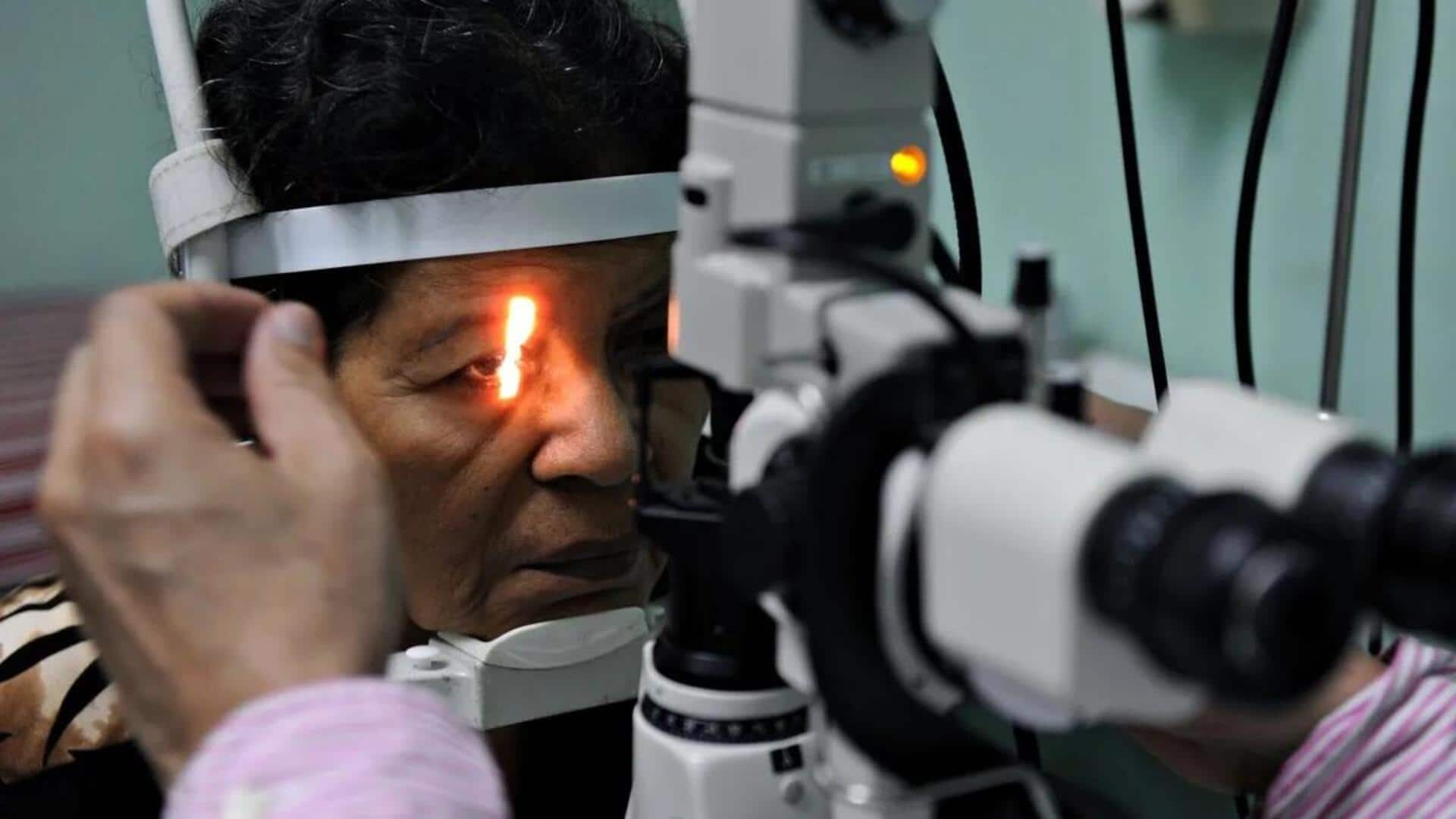
Study warns weight-loss drugs may cause vision loss
What's the story
Weight-loss drugs like semaglutide and tirzepatide have been linked to serious eye diseases and vision loss, according to two new studies. The research was published in JAMA and analyzed data from nearly 1.5 million people. It found an increased risk of optic nerve disorders in diabetes patients taking these medications.
NAION risk
One in every 2,500 cases developed serious condition called NAION
The research highlights a rare but serious condition called non-arteritic anterior ischaemic optic neuropathy (NAION). This occurs when blood flow to the optic nerve is suddenly reduced or blocked, leading to an "eye stroke." There is no treatment for this condition. An earlier study had indicated a one in 10,000 chance of developing NAION. However, recent findings show that 35 out of 159,000 type 2 diabetes patients on semaglutide or tirzepatide developed NAION—about one in every 2,500 cases.
Retinopathy risk
GLP-1 receptor agonists linked to diabetic retinopathy
Another study involving 185,000 people found a link between weight-loss drugs known as GLP-1 receptor agonists (RAs) and an increased risk of diabetic retinopathy, a condition that damages blood vessels in the retina. However, those on GLP-1 drugs had fewer vision-threatening complications from diabetic retinopathy and required less invasive eye treatments than those on other diabetes medications.
Monitoring needed
Researchers call for long-term studies, screening
Despite the low overall risk of developing such conditions from these drugs, researchers have called for closer monitoring. They also recommend more long-term studies to understand how weight-loss drugs can lead to eye complications. The latest research suggests that all diabetes patients on weight-loss drugs, even those without pre-existing diabetic retinopathy, should be regularly screened and monitored for potential complications.